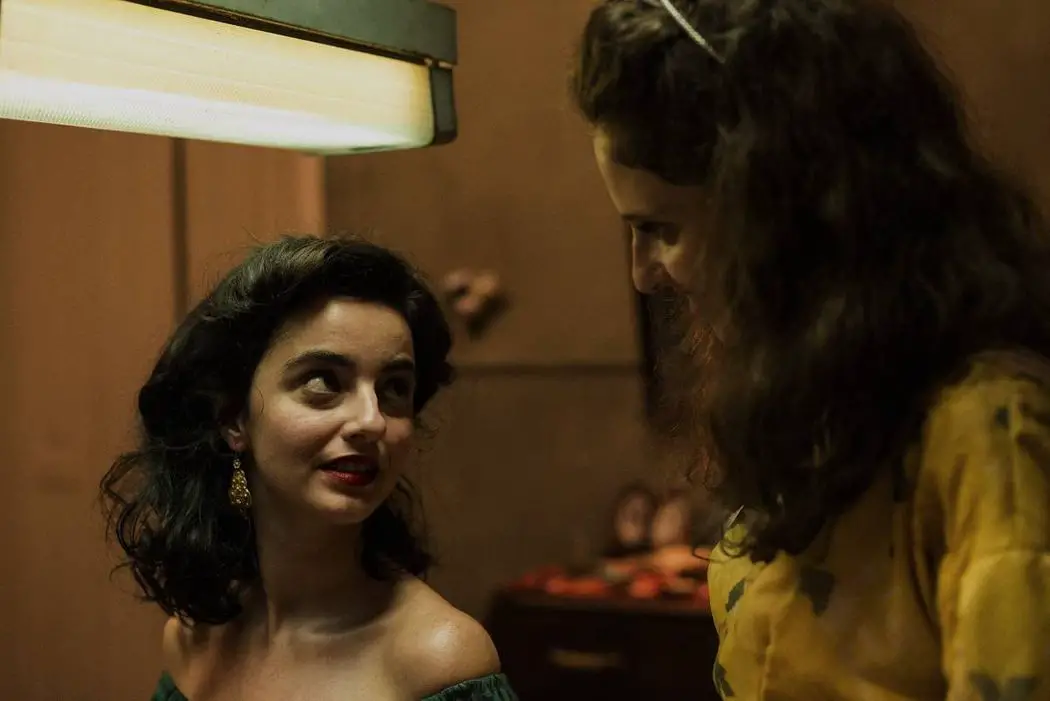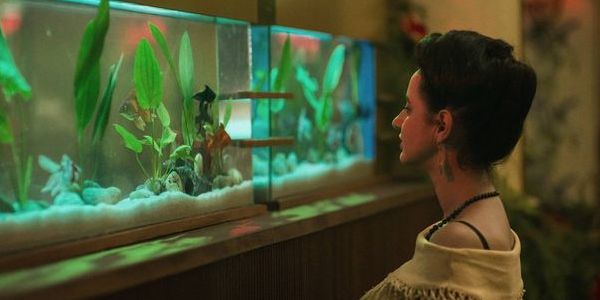INVISIBLE LIFE: Home Is Where The Heart Is

Just a plain ol' country boy living in the big…
Considering the current political status of Brazil, Invisible Life, by filmmaker Karim Aïnouz, is something of a small miracle. By using the tale of two sisters separated by the inevitable pull of destiny, it explores the oppression of women in a time and place that denied them the freedom to be in control of their own futures. It stands as an admirably brave statement up against those lingering traditions that still exist in the country to this very day. This idea might not always have the emotional force that’s needed to justify an argument, but it chooses to manipulate us in a different way – revealing its hidden powers with a gentle and hypnotic beauty; you’re watching a poisonous, exotic flower blooming in the light of a rising sun, unaware of the imminent harm it could cause.
Watering down the psychological abrasiveness of Madame Sata (2002), but outshining the intoxicating visuals of Futuro Beach (2014), Aïnouz’s new film, an adaptation of Martha Batalha’s 2016 novel ‘The Invisible Life of Eurídice Gusmão”, finds the understated director reaching artistic heights by telling an intimate story that feels thematically timeless. This film will no doubt catch the attention of a wider demographic with its universal relevance and an inspired approach to filmmaking that might just shed some light on the unpredictable future of the Brazilian film industry.
A Life Worth Living
Set in Rio de Janeiro in 1950, the story follows siblings Eurídice (Carol Duarte) and Guida (Julia Stockler), who both dream of a bigger life outside the walls of their family home living with their conservative parents, Manuel (Antonio Fonseca) and Ana (Flavia Gusmao). Musically talented, Eurídice aspires to audition for the prestigious music conservatory in Vienna to fulfil her dream of becoming a professional pianist, while Guida’s wild-at-heart nature leads her into an idealistic romance with a handsome Greek sailor, Yorgos (Nikolas Antunes), which doesn’t exactly go to plan.

As the sisters begin moving out into the world, the strength of their own relationship along with those around them is soon put to the test when they realise that the paths they’ve chosen are beginning to pave a greater physical and emotional distance between them. To make matters worse, it doesn’t help that Guida refuses to return home after being aggressively disowned by her father when she fell pregnant to a man who never planned to stick around, unaware that the handwritten letters she’s been sending to Eurídice over the years will never be received because, she too, was swept away by a man to a far away country and was never informed of Guida’s whereabouts.

Carried by a strong undercurrent exploring the banalities of life and irrevocable weight of time, the script moves back-and-forth between the two women’s opposing circumstances – sometimes hinting that the spiritual connection they share will bring them together eventually. It soon becomes clear that the probability of that happening hinges on the notion that they must choose between continuing the lives they’ve come to lead or fighting for the lives they’ve always dreamed of living. While their bond is never weakened by the burdens that befall them, the unpredictable nature of fate begins to take hold, leaving both women tormented with regret and a growing desperation to reunite before it’s too late.
Smoke & Mirrors
Keeping a safe distance from over-dramatising the story’s themes regarding feminism, Aïnouz instead unearths the suppressed anxieties felt by women at a time in history where the expectation to behave within the boundaries of old-fashioned cultural beliefs had the ability to overpower a woman’s choice to follow her instinctual desires.
One sequence in particular recalls a similar scene from Lars von Trier’s Breaking The Waves (1996), in which we observe an awkward post-ceremony consummation between a bride and groom that focuses on the woman’s perspective during that life-defining moment – finding the women caught between a state of alienation and liberation. In moments like these, we get a sense of where these women have come from and who they are about to become.

Aïnouz has always been a storyteller who has something important to say but never without hiding it beneath the surface of his expressionistic imagery; almost as if he’s tempting us to dive headfirst into the murkiness of his vision and trusting that we’ll discover hidden truths about ourselves through the resilience of his characters. With all the right ingredients for a Hallmark Midday Movie, adhering to a linear narrative could have pushed the dreamlike Invisible Life into a similar category, but somehow, with an ever so sensitive touch, Aïnouz paints a colourful portrait of two women at odds with their own destinies, neither of whom have a cross to bear, apart from enduring a cruel streak of fate that continues to keep them apart. And for that very reason, the time-hopping drama never feels forced.
Invisible Life: Paradise Lost
Similar to taking an uncharted journey into the heart of a densely overgrown rainforest, where the potential to get lost without a clear destination in sight is just as likely as discovering something magical on your way, Invisible Life feels like it exists in a world of its own. From the opening images of Amazonian-like jungle foliage, with lush emerald leaves and dewy moss melting over stones wrapped up in the mesmeric soundscape of its tropical inhabitants, we know we are going to take a trip somewhere special, maybe even sacred.
Through blending the hazy colours of Hélène Louvart’s dazzling cinematography with composer Benedikt Schiefer’s sweeping score, and bolstered by two incredibly touching performances by Duarte and Stokler, Aïnouz orchestrates an artful examination of sisterly love torn apart by familial tradition, revealing how the toxicity of male-dominated patriarchy has the potential to trickle its way down from generation to generation with damaging results. Sometimes the story is told at such a distance we forget where it all began, but it’s Aïnouz’s overwhelming sense of compassion that keeps our eyes wide and hearts open. It’s an enchanting experience, one that emphasises the power of hope in times of helplessness and the importance of love above all else.
Have you seen Invisible Life? If so, how did it make you feel? And how would you compare the quality of independent Brazilian cinema to those released in Westernised cultures? Leave your thoughts in the comments section below.
Invisible Life was released in the UK on the 12th of October and in the US on the 20th of December, 2019. For other release dates, click here.
Does content like this matter to you?
Become a Member and support film journalism. Unlock access to all of Film Inquiry`s great articles. Join a community of like-minded readers who are passionate about cinema - get access to our private members Network, give back to independent filmmakers, and more.
Just a plain ol' country boy living in the big city with even bigger dreams. Film obsessed and 100% dedicated to surrounding myself with all forms of art 24/7. I love to write as a creative outlet, and share my thoughts and ideas about the world of cinema with likeminded individuals.













